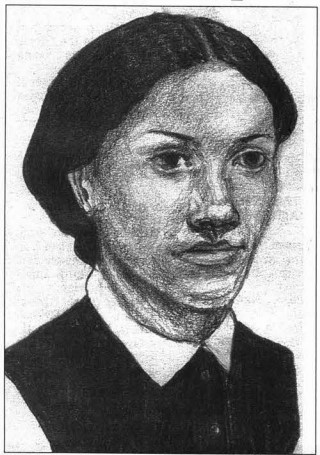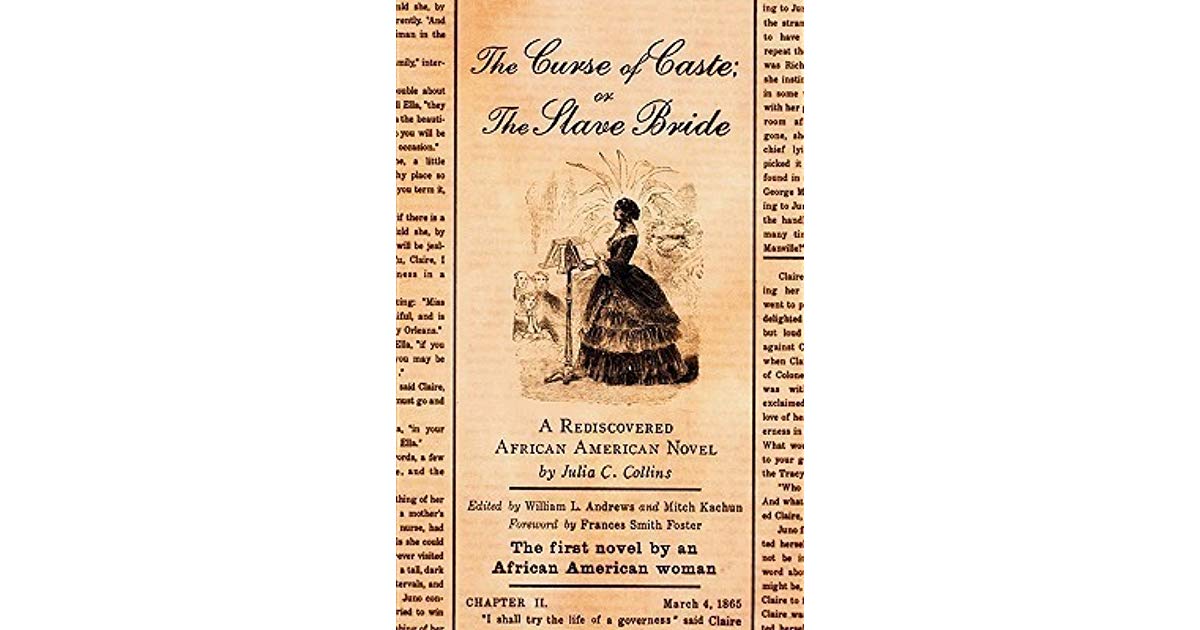
Julia C. Collins never finished her novel The Curse of Caste; or The Slave Bride (started in 1865) because she died from tuberculosis, but while she was working on it, she applied different literary genres and sub-genres to picture the whole tragedy of the times before, during, and after the Civil War, including the complexity of the interracial marriages and all the consequences of them, as well as internal and external conflicts that the female characters have to overcome in order to become free.
Generically speaking, most novels include a plot that has an exposition, rising action, climax, falling action, and conclusion. In the literary world, The Curse of Caste is considered to be a novel, but this is a novel that doesn’t have a falling action and conclusion due to a sad circumstance. The author passed away from a severe disease and didn’t finish the story. This is a reason why it is incredibly hard to predict the genre of Collins’ work, due to the fact that she never finished the story. In 2006, William Andrews and Mitch Kachun, who are the two scholars who rediscovered Collins work, offered two imagined endings of the story.
The tragic ending, according to Andrews and Kachun, concludes in the marriage of Claire and Count Sayvord; after the wedding, Claire is being killed by Belle, in other words, it is the ending where Claire gets killed because of the raging violence due to trans-racial marriage (Belle is a symbol of unsympathetic southern white womanhood). By all means of such an ending and the definition of tragedy as a literary genre, we could compare The Curse of Caste to a drama. They have suggested this possible ending where Claire would die and her main conflict in searching for her identity would not be resolved.
The “best case” scenario ending of the story, which has been suggested by the same scholars Andrews and Kachun, would help us to consider The Curse of Caste to a romance. The authors believe that there is a chance that the ending could have been the one where Claire meets her father, accepts both news of her mixed racial ancestry and the marriage proposal from Count Sayvord and returns to France with her husband and her father. This ending helps Claire to resolve all her internal and external conflicts and problems and leads her to a happy life.
But what ending would you suggest to the this awesome novel? Do you agree with the scholars, or can you come up with your own research?
The book with the editors’ two alternative endings, and six essays published by Julia C. Collins can be found here.

More information on Julia C. Collins’s biography can be found in the previous research by Stockton students, Laura Diamond and Rileigh Ruff here.
Sources:
Rafia, Zafar, “Of Print and Primogeniture, or, The Curse of Firsts” African American Review 40:4 (2006) 619-624. Accessed 24 Oct. 2019.
Brown, Lois. Review of The Curse of Caste; or The Slave Bride: A Rediscovered African American Novel. Legacy, vol. 24 no. 2, 2007, p. 331-332. Project MUSE, www.muse.jhu.edu/article/225283. Accessed 10 Oct. 2019.